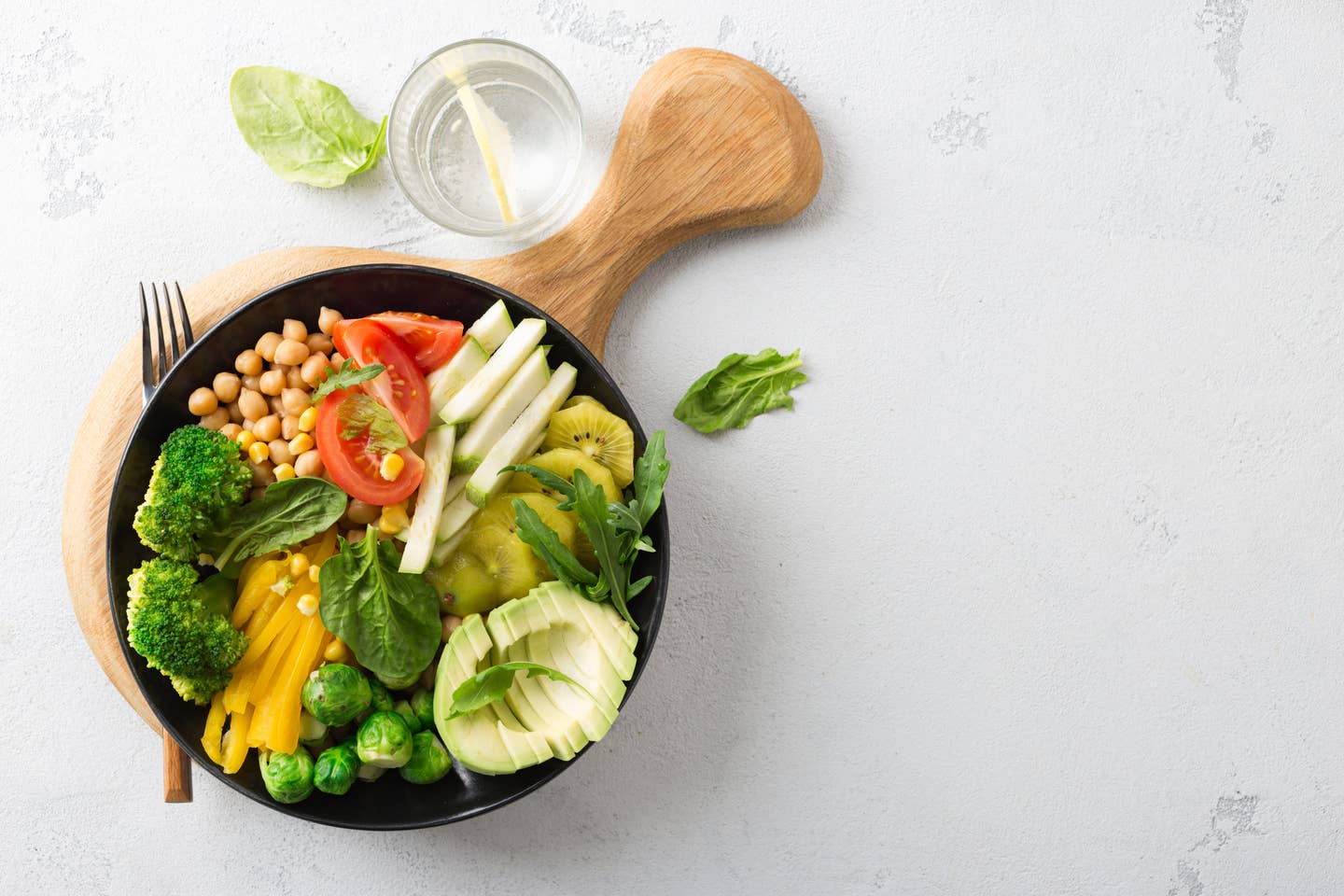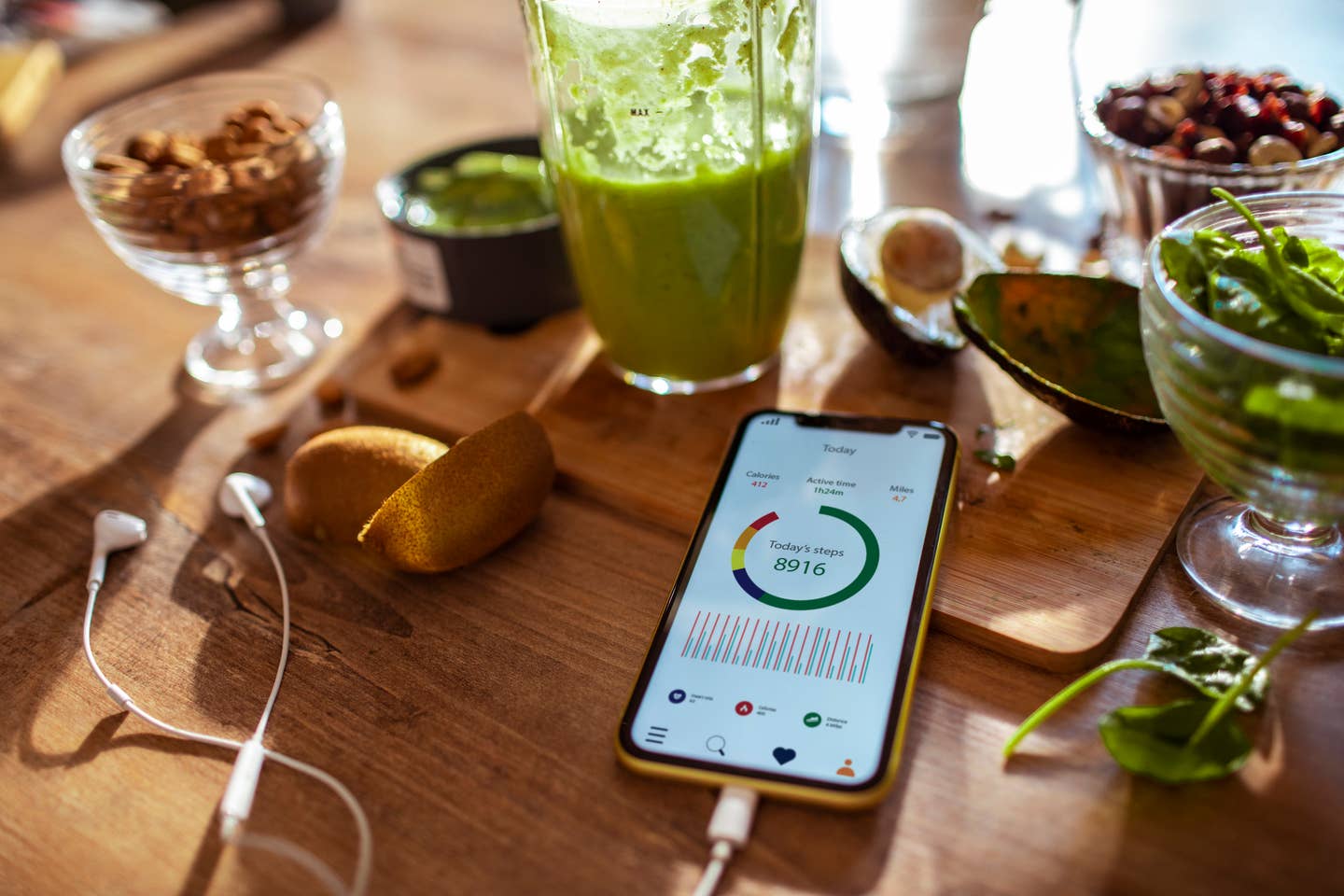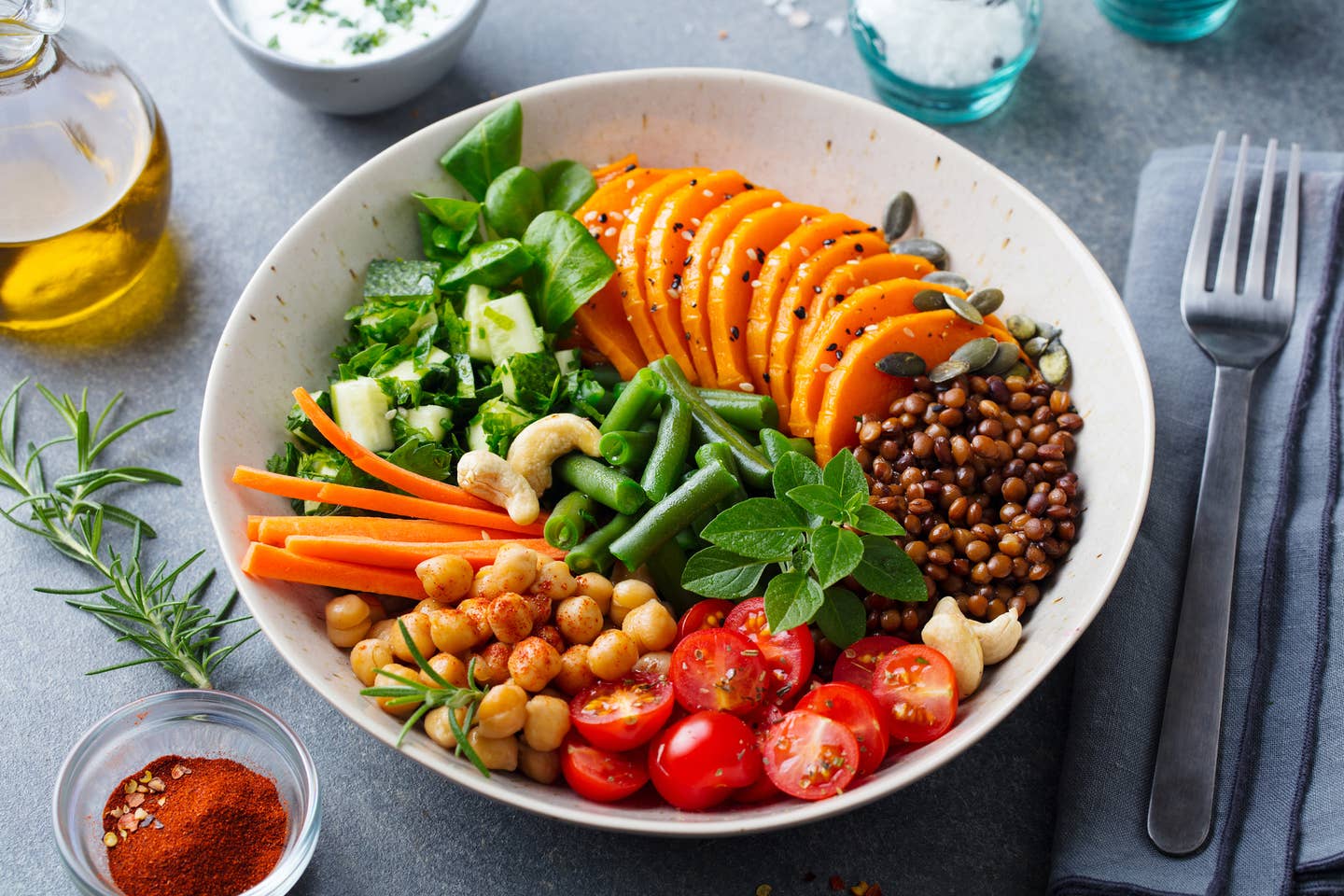
Intermittent Fasting Not Working? Here’s What Could Be Going Wrong, By an RD
Intermittent fasting is having a moment. Whether you prefer to eat keto or plant-based or are just trying to make up for some extra indulging over the holidays, everywhere you turn someone is extolling the virtues of this simple, flexible diet strategy, where you eat for a window of time (usually 8 hours) and then fast and let your body go without any food for a longer window (usually 14 to 16 hours). This allows your your body to metabolize the food you eat and then shift from burning that as its fuel to burning fat for fuel.
Adam Sandler to Kourtney Kardshian swear by intermittent fasting for weight management and other health benefits, according to the founders of Zero, the world’s most popular fasting app with 7 million users. Zero's Chief Medical Officer is Dr. Peter Attia, a fasting expert. The app itself was launched by Kevin Roe and is now run by Mike Maser, CEO and Founder of Big Sky Health. This app's popularity shows that intermittent fasting, while simple in concept, is not always as intuitive as it sounds, and some people need a little helpful coaching, insights, tracking, custom plans, in order to make intermittent fasting work.
If you're one of the millions of intermittent fasters who have tried it recently and not had great luck with it, or didn't see the weight drop off, there may be simple shifts you can make (like what you're eating during the on hours) to get the results you crave.
If you need a little help losing weight and eating healthier, while you're intermittent fasting, an all you're hearing is how "great" and easy it is from friends, we say turn to a source you trust, since expert advice is always the way to go. We asked Nicole Grant, RD, CNSC the lead dietician for the Zero Fasting app, the most popular IF coach in the app store, for her best tips on how to do IF right
The Beet: Why is Intermittent Fasting taking off, especially now? Is it just another fad?
Nicole Grant: While some people believe that fasting is another fad diet, the practice has been going on for centuries. So, it isn’t an entirely new concept. However, I believe the uptick in popularity has come from a wider understanding of the non-weight loss related benefits. There are so many other positive outcomes from IF that can be experienced including boosted energy, reduced inflammation, accelerated cellular repair, improved body composition, and it can even be an effective tool to mitigate risk for metabolic syndrome.
The Beet: For people who haven't tried it yet: How does it work for weight loss?
Nicole Grant: Every individual body responds to fasting a little differently, due to genetics, current health, pre-existing conditions, and lifestyle, to name a few. However, for an average healthy person, there is a general timeline of expected metabolic responses. Between 0 and 4 hours after a meal, your body is still going through the process of digesting, utilizing and storing the last thing you ate. It takes the carbohydrates, protein and fat you consumed and turns them into glucose, amino acids and fatty acids to be used as energy or to be stored for later use. Once your body shifts out of that anabolic phase, the next 4–16 hours are dedicated to catabolism, [the breaking down of food into smaller molecules to burn as energy] lowering of blood glucose, lowering insulin levels, and triggering glucagon, to start breaking down glycogen (stored glucose in the body).
Between 16 and 24 hours is generally when fat burning starts to become more dominant and 24+ hours is when we start seeing the body switch to a ketogenic state, where many of the longevity benefits start coming into play. Exactly which benefits you will experience depends on the duration of your fast as well as many of the individualized characteristics noted above (health, genetics, etc.). We suggest establishing a plan and approach that’s best for your health, lifestyle, and specific goals in order to achieve the results you want.
The Beet: What is the best amount of fasting time for rapid weight loss (would you recommend 14 hours or more)?
Nicole Grant: We don’t like to promote IF as a diet for rapid weight loss. Instead fasting should be seen as a tool that can be used in conjunction with better nutrition, exercise and other lifestyle practices to enhance overall health in a prolonged, sustainable way.
In addition to that, we encourage people to establish and understand their “why” for fasting. By identifying what each individual wants to accomplish with fasting and having a clear goal in mind, it will help them to make safe and informed choices about what type of fasting and duration is right for them.
If the goal is to lose weight, the individual also needs to keep in mind where they are starting at, from a health perspective. Those who have more severe metabolic issues or who have more weight to lose will likely respond differently than those who start out a bit healthier.
The Beet: When people start out, what are the biggest pitfalls of IF?
Nicole Grant: The biggest pitfalls of fasting are the misconceptions that surround the practice–it’s not just a weight-loss strategy. There are many different benefits to fasting as outlined above, and based on the person’s goal, fasting can provide different results and outcomes for people.
Fasting is also not always the best choice for everyone. We do not recommend fasting for those who are Type I diabetic, pregnant or have had a history of disordered eating. In addition, those who take medications and supplements should also consult with a doctor prior to fasting to discuss any possible precautions that may need to be taken.
The Beet: You believe coaching can help. How does the Zero Fasting app work?
Nicole Grant: Zero acts as a personalized fasting coach that offers expert insights, tips, education, and resources for users. It also includes various helpful features, the timer feature for example is very popular and reminds users when they are able to break their fasts. Zero also recently announced Challenges which offers a fun way to stay motivated! Through Challenges, users can fast alongside Zero experts, invite friends to join, and achieve their goals.
The Beet: When fasting, what do you recommend someone eat after breaking a fast?
Nicole Grant: When breaking a fast, consuming protein in the first meal is important because it helps to initiate the rebuild and repair phase. Some recommended plant-based options include organic, fermented soy, sprouted nuts/seeds and possibly some legumes/grains if those are tolerated and digested well in that individual. In addition, general nutrition guidelines of choosing whole foods, low in added sugars, and minimally processed items will be important to focus on outside of a fast.
The Beet: Why do you think fasting caught on specifically now during a pandemic?
Nicole Grant: One reason why I think fasting has become more mainstream is that it isn’t a diet, it’s a practice that can be incorporated into a healthy way of eating throughout someone’s lifespan, and has a low barrier of entry. You don’t have to pay for a system or regiment, it’s truly putting intention behind when you eat.
Unlike diets where people are on the program for a certain duration of time and then they revert back to their old eating habits, fasting is a timeless practice that can be used to benefit a variety of people.
Here are other data points that the Zero app has found, which may be helpful to you:
The most popular fasting zone is catabolic, where you break down energy in the body, followed by anabolic where you build up muscle, followed by fat-burning, autophagy and finally deep ketosis.
According to data, a 16:8 fast is the most popular, where you fast for 16 hours and eat within the next 8, followed by 18:6 (fasting for 18 hours, eating in a 6-hour window), then 20:4, and then 13:11. Ascertain your best rhythm. Figure out what type of fast works best for you.
Setting goals is key to a successful fast. Managing weight is the #1 goal of those who fast, followed by increased energy, increased clarity, increased longevity, and finally detoxing.
Time isn't enough. Time restriction, caloric restriction and dietary restriction are the three variables that you should be keeping in mind when fasting, according to Dr. Attia, chief medical officer for Zero. "Time restriction is when you eat, when you don’t eat; calorie restriction is how much; dietary is what you eat. The right way to do this is to have a strategy for all three and cycle through them."
People want to be healthier in quarantine and IF can help. Zero saw an uptake of 3M+ sign-ups since March, when the pandemic forced people into their homes for work and play, and your home became y our gym, so fitness and diet apps had a surge in popularity.
More From The Beet






